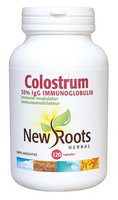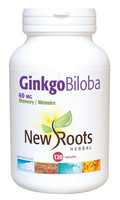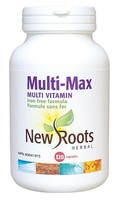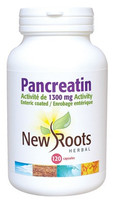- Home
- Health Condition
- Menopause
- New Roots Menopeace, 120 Capsules
Product Description
Menopeace helps a woman pass through menopause more smoothly, by helping to ease the hormonal ups and downs that can occur during this period of a woman’s life.
Ingredients
| Each vegetable capsule contains: | |
| Black cohosh (Actaea racemosa [Ranunculaceae]) root, 2.5% triterpenes | 30 mg |
| Chaste tree (Vitex agnus-castus), 0.5% agnusides, 0.6% aucubin | 125 mg |
| Dandelion (Taraxacum officinale [Asteraceae]) root extract, 3% flavonoids | 62.5 mg |
| Dong quai (Angelica sinensis) root extract, 1% (Z)-ligustilide | 125 mg |
| Red clover (Trifolium pratense) flower tops extract, 40% isoflavones, 25.2 mg AIE* | 75 mg |
| Wild yam (Dioscorea villosa) 8:1 extract, 16% diosgenin | 25 mg |
| *AIE = Aglycone Isoflavone Equivalents | |
Suggested Use
Detailed Description
Menopause is part of the natural life cycle of women. Menopausal symptoms affect about 70% of women approaching menopause. Typical menopause symptoms, such as hot flashes or night sweats, are caused by changing hormonal levels in the female reproductive system. Almost all women notice early symptoms while still having periods. This stage of gradually falling and fluctuating hormone levels is called perimenopause, which often begins in the early 40s.
The symptoms of menopause usually last for the whole menopause transition (until the mid 50s), but some women may experience them for the rest of their lives. This can be an uncomfortable time for many women as they adjust to fluctuating hormone levels, hot and cold flashes, and a variety of other symptoms.
Menopeace is formulated with isoflavones, terpenes, and flavonoids to help balance hormone production through menopause. The plant-based, estrogen-like properties of the isolates in Menopeace help modulate estrogen and testosterone levels, keeping them within normal ranges. As well, the natural ingredients help regulate estrogen to progesterone levels, for a smooth transition. Menopeace accomplishes this without the carcinogenic fears of hormone replacement therapy (HRT).
 Loading... Please wait...
Loading... Please wait...











